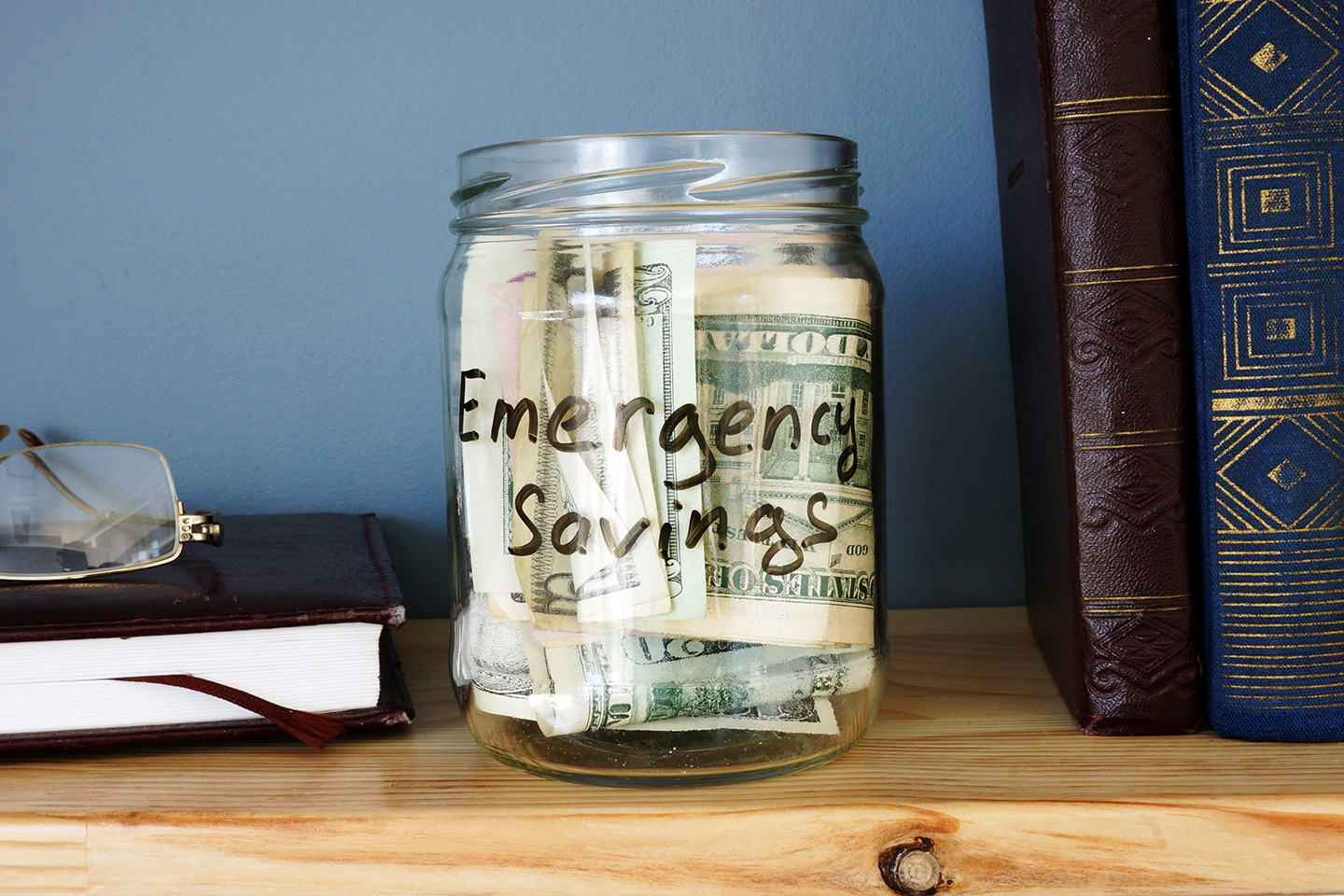When unexpected expenses arise, having an emergency fund to tap into can deliver easy-to-access money — and big relief — just when you need it most. That’s why, in an earlier Arthur State Bank blog article, we offered information on some of the most effective ways you can start building your own emergency fund.
Today, we’ll take a deeper dive into the topic by examining why it’s important to have an emergency fund on hand — and some of the ways such “rainy day” money can help you when you’re in a financial bind. Consider these six benefits an emergency fund can deliver not only when surprise bills present themselves … but even on an ongoing, everyday basis:
- An easy way to dodge debt — When consumers don’t have an emergency fund in place for themselves and have no other readily accessible cash on hand, they are often forced to turn to credit cards to cover unanticipated expenses. And of course, using a credit card to cover unexpected bills can bring high interest rates if the balance isn’t paid off right away. Further, if the consumer is unable to make regular payments on any outstanding credit card balance and/or is otherwise unable to knock the debt down quickly, this can result in the accrual of compound interest — and can ultimately lead to a significantly higher total cost than the initial expense charged on the credit card.
Alternatively, with an emergency fund built up and easily accessible, the consumer can have quick access to the money needed to cover surprise expenses … without any need to go into debt. - Improved emergency management — In some cases — for example, a plumbing issue in the home or a need to replace a part on a family vehicle — a delay in performing needed repairs or maintenance can make the problem worse … and can even be dangerous. So, when you don’t have the money on hand to address the issue, the problem (and the expenses it brings) can compound. But with an emergency fund at the ready, such problems can be addressed and fixed right away, before they lead to bigger headaches.
- Extra aid should unemployment arise — Unfortunately, continual employment is never assured, and an injury or layoff can suddenly leave a worker without a regular job … or a regular paycheck. This lack of income, of course, can wreak havoc on household finances if the unemployed consumer doesn’t have backup funds available. But with an emergency fund in place, he or she has a financial buffer to (at least temporarily) fall back on while searching for a new job or recovering from an injury.
- Financial fortification — When surprise expenses strike or a loss of income sets in, especially if either lingers over a long period of time, it can take a big toll on one’s finances and ability to cover bills. And when such circumstances lead to missed and/or late debt payments, it can negatively impact one’s credit score and overall financial well-being. However, with an emergency fund in place, vital bills can get paid on time and in full, helping the consumer avoid the financial pitfalls that a shortage of money can bring. Most experts recommend having a large enough emergency fund built up to cover three to six months’ worth of living expenses should the need arise — and doing so can provide financial stability, often when it’s needed most.
- A reduced temptation to spend — When the money for an emergency fund is set aside in, for example, a savings account or a money market account, it can be “out of sight, out of mind” — helping reduce the temptation to spend it. As a result, for many consumers, putting money in an emergency fund is a great way to build up more savings, as they’re much less likely to splurge or otherwise expend the funds than if they were held in cash or in an account meant for covering regular expenses. (For this reason, many consumers choose to set up regular, automatic money transfers from their paycheck or checking account to their emergency fund, often either on a monthly or per-paycheck basis.)
- Added peace of mind … all the time — According to a recent survey conducted for the American Psychological Association, roughly two-thirds of Americans cite money as a significant source of stress. But with an emergency fund in place, consumers can feel more secure about their finances, helping take the stress out of unexpected bills with the knowledge that they have a financial reserve to tap into when needed — and offering everyday peace of mind.
Proudly serving South Carolina since 1933, Arthur State Bank offers accounts and services to meet a variety of financial needs. To help you achieve all your financial goals, the bank offers in-person service as well as a range of convenient digital solutions. To learn how Arthur State Bank can help you with banking needs ranging from checking and savings to retirement accounts, mortgages, other personal loans and more, visit arthurstatebank.com.






















